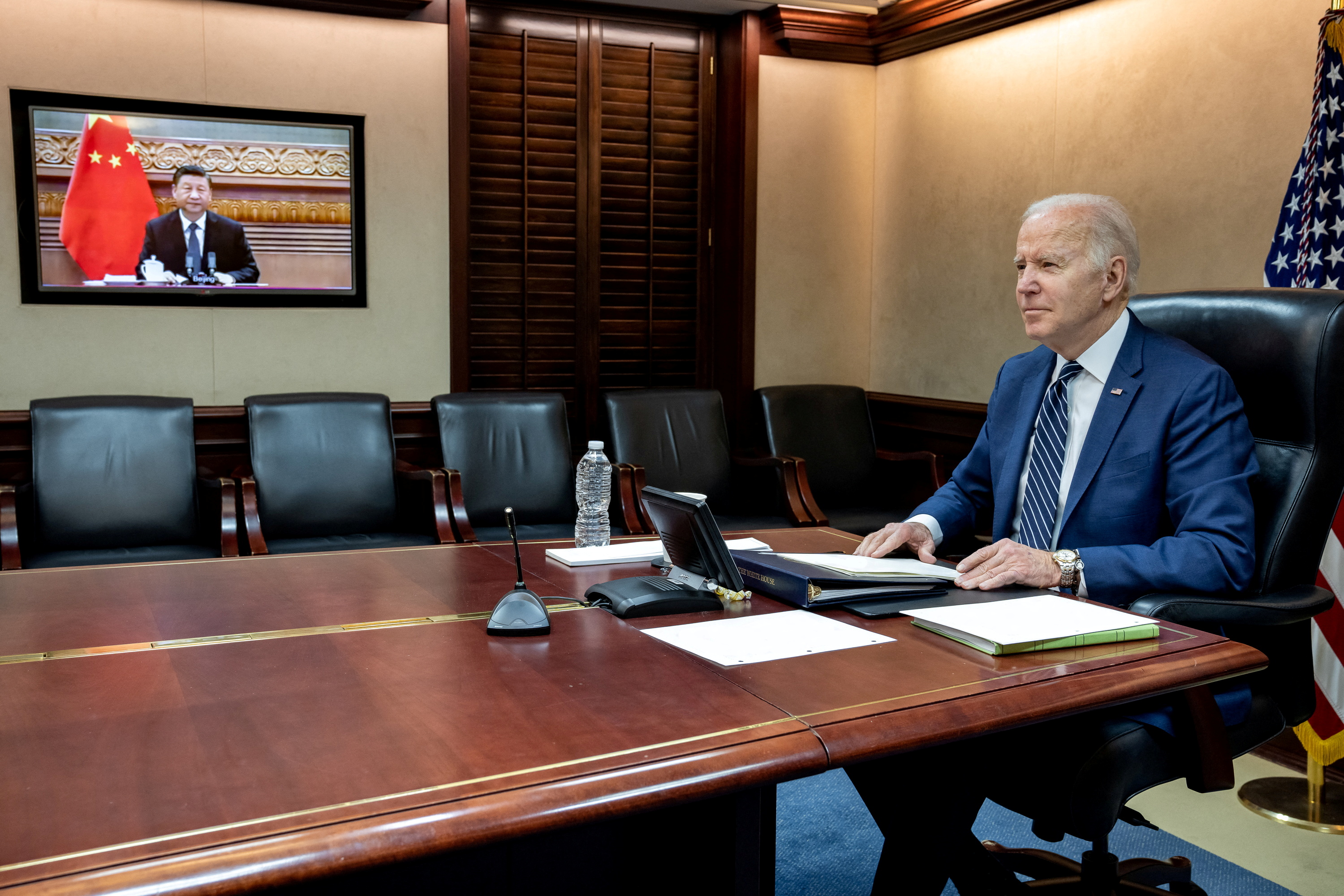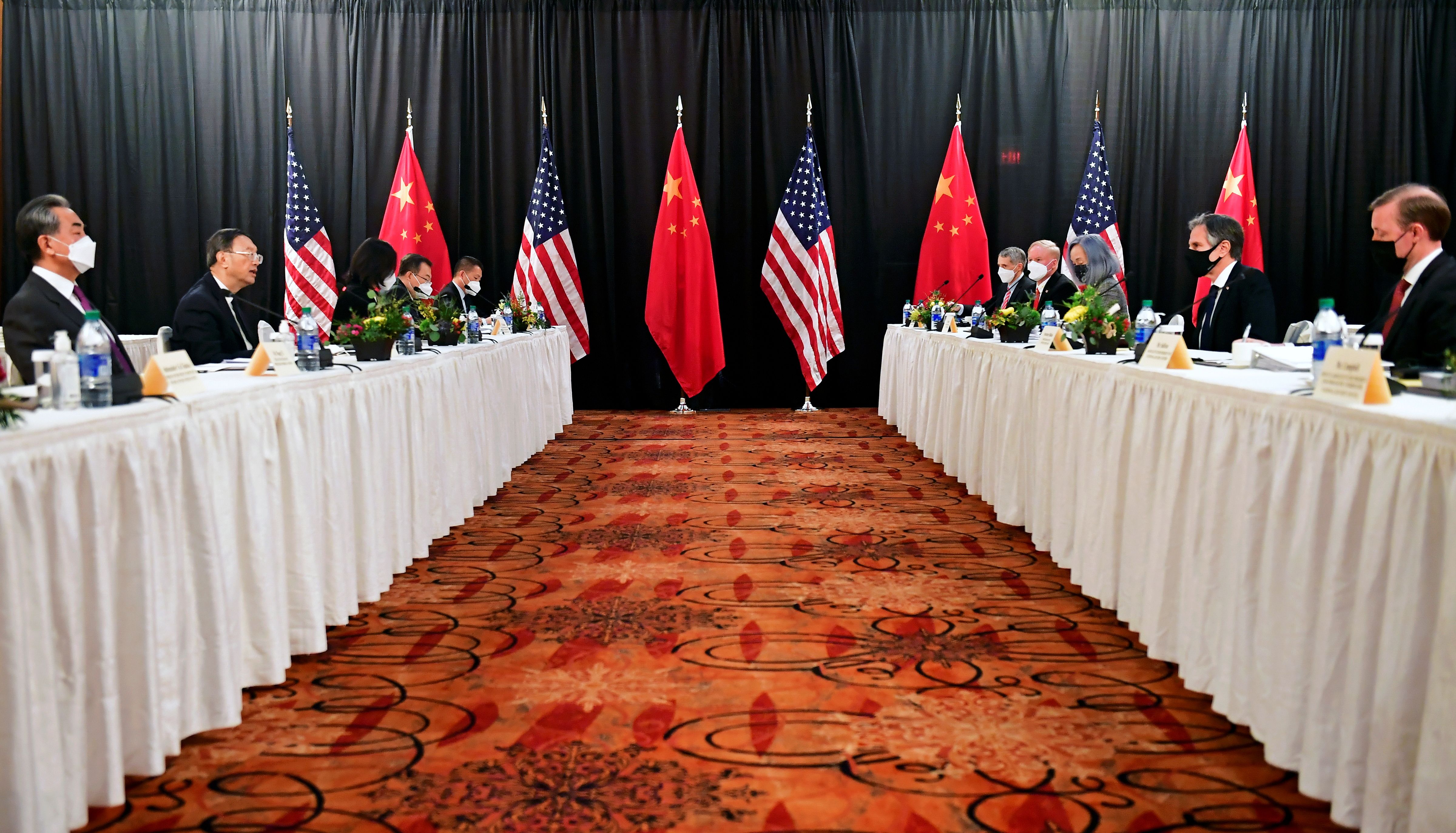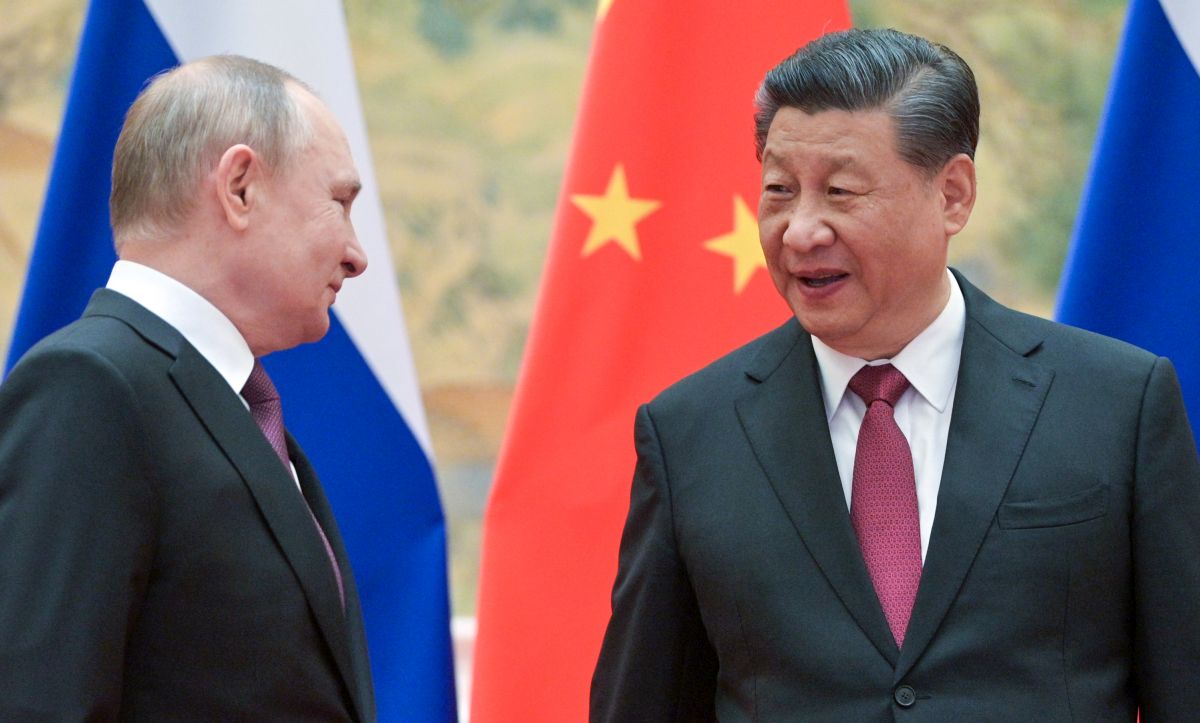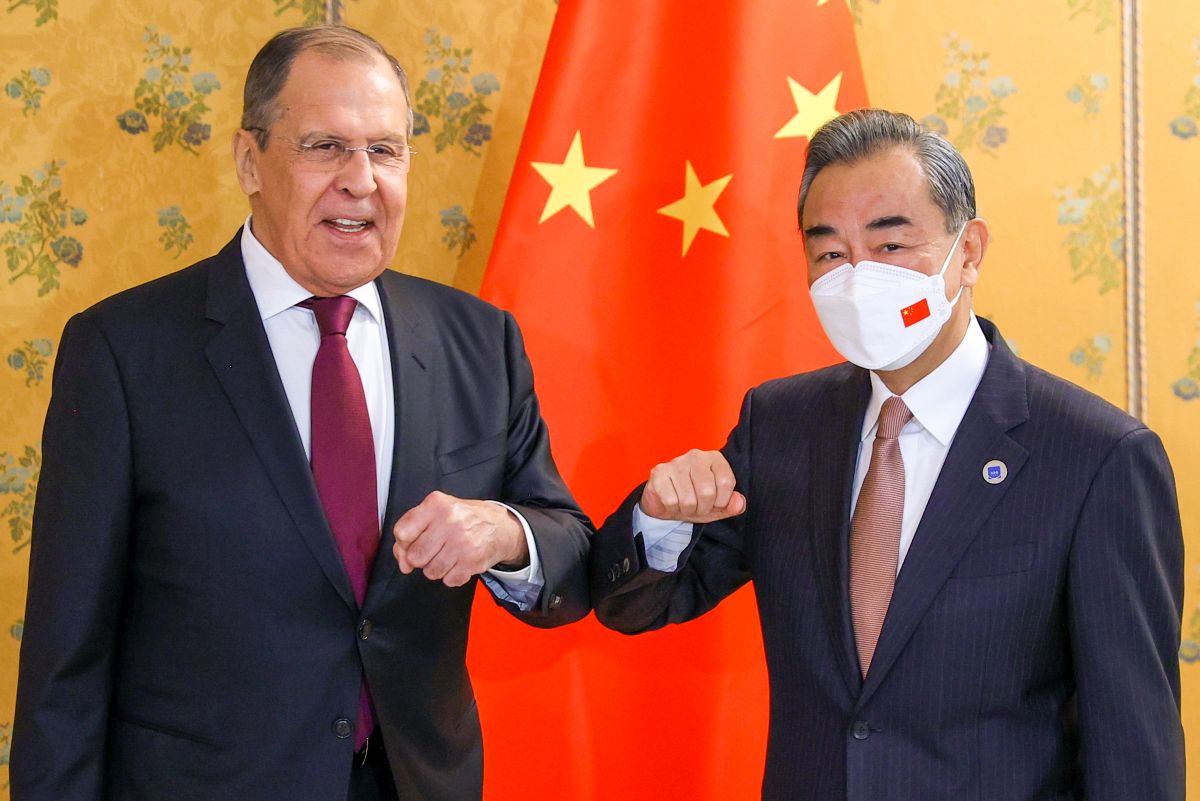Xi-Biden Meeting: China Maintains Support for Russia
The online meeting between U.S. President Joe Biden and China’s Chairman Xi Jinping on 18 March confirmed China’s readiness to strengthen cooperation with the Russian Federation in the context of the war in Ukraine. In response to the U.S. warnings against supporting Russia, Xi claimed the U.S. was responsible for the outbreak of the war and called on it to negotiate with Russia. He also expressed concerns about the stability of the situation in the Taiwan Strait, accusing the U.S. of supporting groups backing Taiwan’s independence.
 HANDOUT/Reuters/Forum
HANDOUT/Reuters/Forum
What were the circumstances of the talks?
The talk between the leaders, the first since Russia’s invasion of Ukraine on 24 February, was preceded by a meeting in Rome on 14 March between U.S. National Security Adviser Jake Sullivan and Yang Jiechi, a member of the CCP’s Politburo. The meeting concerned mainly the information made public by the Americans that China is ready to provide military support to Russia in Ukraine. Just before the Biden-Xi talks, EU officials confirmed that the U.S. information about the possibility of Chinese support for Russia was credible. The Sullivan-Yang meeting confirmed the differences between the positions of China and the U.S. on Ukraine, but the Chinese Ministry of Foreign Affairs rejected accusations of material support for Russia. At the same time, China continued its propaganda about U.S. responsibility for the war in Ukraine and the supposed presence of American biological weapons laboratories there, parroting Russian messaging.
What is China’s position towards the war in Ukraine?
In a statement, the Chinese side emphasised the importance of the meeting as an element of bilateral dialogue but confirmed its support for Russia in the war in Ukraine. It stressed the need to resolve the conflict by building a new, balanced, global and regional security architecture that takes into account the Russian threat perception caused by NATO expansion. This is in line with the joint China-Russia statement signed after Vladimir Putin’s visit to Beijing in February. During the talk with Biden, Xi expressed his concern about the humanitarian crisis in Ukraine and called for peace. He proposed solutions beneficial to Russia and China as a method of achieving it, such as U.S. involvement in talks directly with Russia without Ukraine’s participation and without Russia needing to accept responsibility for the aggression. Xi also pushed back on the legality and effectiveness of sanctions, both in relation to Russia and with respect to measures the U.S. or the EU could impose on China, emphasising that this may worsen the condition of the global economy.
What were the U.S. goals of the meeting?
Biden was not counting on China to cooperate constructively in the face of the Russian aggression against Ukraine. The White House statement indicates that during the conversation, the president focused primarily on informing Xi of the possible consequences of providing material support to Russia. The American statement also did not indicate specific measures, but most likely—as previously suggested by American officials—it concerns, wide-ranging secondary sanctions, including in the important semiconductor sector, on Chinese companies should China decide to support Russian entities already subject to U.S. sanctions. Biden’s firm attitude in the conversation with Xi was in the hope that China would consider the negative consequences of involvement with Russia on the Chinese economy.
Will there be a change in China’s policy towards Russia?
The course of the Biden-Xi conversation shows that the Chinese side does not intend to take into account the American warnings regarding support for Russia. This is confirmed by the general sentiment underlying Xi’s statement in which he shifted the responsibility for ending the war to the United States. China is concerned about the negative impact of possible sanctions but hopes that the political gains from Russia’s support will be greater, including as part of the wider strategic competition with the U.S. China may expect that by maintaining Russia’s potential to compete with NATO—also in the event of Russia’s weakening and possible defeat in Ukraine—that this will continue to bring destabilisation to Europe and allow China to gain a better strategic position in the Indo-Pacific. This is confirmed by the comments of the Chinese minister and deputy foreign minister who, after the Biden-Xi talks, again suggested that NATO was responsible for the outbreak of the war in Ukraine and compared it to what he called the U.S. irresponsible policy in Asia.
What was the significance of Taiwan in the meeting?
For China, Taiwan’s future was the main reason for Xi’s conversation with Biden. The pursuit of unification with the island remains the main Chinese political demand, as well as an element of the CCP’s legitimacy. Xi expressed that the continuous U.S. support for Taiwan could lead to independence motives and that it should stop these activities. He expressed the hope that Biden would put an end to the alleged pro-independent Taiwan statements of some U.S. administration officials. According to the White House communiqué, the U.S. president confirmed both the Americans’ refusal to change the status quo in the Taiwan Strait and the continuation of current U.S. policy, i.e., non-recognition of Taiwan. China is increasingly combining in its rhetoric expressions about supposed irresponsible U.S. policy (by implying American responsibility for the war in Ukraine) and the Americans’ actions in the Taiwan Strait. This may suggest an attempt to prepare a pretext for a possible Chinese military operation against the island.
How will the effects of the talk affect EU policy?
China’s support for Russia, as expressed during the Xi-Biden talk and in subsequent comments from the Chinese Foreign Ministry, run counter to the EU’s interests, especially in the context of the demands to change the security architecture in Europe. China’s objection to sanctions imposed on Russia by Western countries contrasts with the restrictions on Lithuania maintained by China, which have a negative impact on the EU’s single market. From the EU’s perspective, it is necessary to make talks with China the main part of the framework of the summit planned for 1 April, especially the condition of China’s resignation from supporting Russia in the war in Ukraine. The postulate submitted to the Chinese during the summit could be to increase humanitarian aid for Ukrainians and to call on the Russian side to end the aggression. The EU—China’s largest trading partner—may threaten to impose trade restrictions on Chinese entities that help to increase Russia’s military and economic potential. It also would be in line with the U.S. expectations. The potential negative impact of such sanctions on the Chinese economy may weaken China’s will to support Russia.





